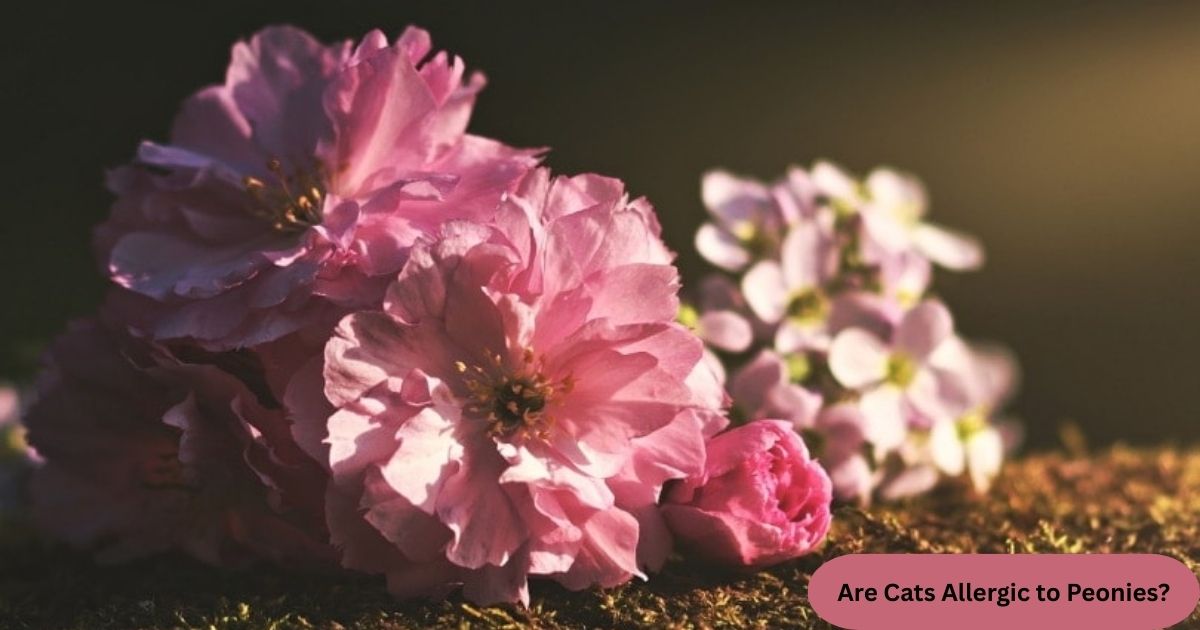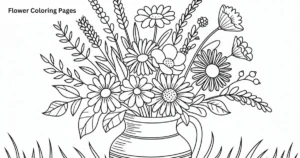Peonies are stunning flowers, adored for their vibrant colors and sweet fragrance, making them a popular choice for gardens and home décor. However, if you’re a cat owner, you may have concerns about whether these beautiful blooms are safe for your furry friend.
While peonies are not considered highly toxic to cats, they can still pose mild health risks if ingested. In this article, we’ll explore the potential dangers of peonies to cats, symptoms to watch for, and tips on keeping your pet safe from harm while enjoying these lovely flowers.
Understanding Peonies and Their Toxicity to Cats
Peonies are part of the Paeoniaceae family and are prized for their colorful blooms and pleasant fragrance. They are commonly grown in gardens and can be found in a variety of shades, from pale pink to deep red. While peonies are non-toxic to humans, it’s important to understand whether they pose a risk to cats.
Peonies contain a substance known as paeonol, which is mainly found in the flowers, stems, and leaves. This chemical compound can cause mild to moderate reactions in pets, especially cats that have a sensitive digestive system or a history of allergies. While not all cats will have an allergic reaction to peonies, it’s essential to be aware of the potential risks.
Are Peonies Safe for Cats?
Peonies are generally considered non-toxic to cats, according to the American Society for the Prevention of Cruelty to Animals (ASPCA). However, this doesn’t mean that peonies are entirely harmless. Some cats may experience mild symptoms if they ingest parts of the plant, such as nausea or vomiting.
The toxicity of peonies to cats depends on the amount ingested and the individual cat’s sensitivity to the plant. Cats that eat larger quantities of peony petals, leaves, or stems may be at greater risk for developing symptoms of poisoning. It’s important to note that while peonies are not classified as highly toxic, it’s still best to keep your cat away from them to avoid any potential health concerns.
Symptoms of Peony Poisoning in Cats
If your cat has eaten part of a peony plant, you may notice some mild symptoms of poisoning. Common signs of peony toxicity in cats include drooling, vomiting, or diarrhea. These symptoms typically appear within a few hours after ingestion.
In more severe cases, your cat may experience lethargy, loss of appetite, or even abdominal pain. If you notice any of these symptoms after your cat has come into contact with a peony, it’s important to contact your veterinarian immediately. They can assess your cat’s condition and provide the necessary treatment to alleviate any discomfort or prevent further complications.
Prevention: Keeping Peonies Out of Reach
The best way to prevent your cat from ingesting peonies is to keep these flowers out of their reach. If you grow peonies in your garden, try planting them in areas that are inaccessible to your cat, such as high planters or fenced-off sections.
Alternatively, you can keep peonies indoors in vases placed on shelves or tables that are too high for your cat to jump onto. By taking these precautions, you can minimize the risk of your cat coming into contact with peonies while still enjoying their beauty.
Alternatives to Peonies for Cat-Friendly Gardens
If you are concerned about the potential risks of peonies to your cat, consider planting pet-safe flowers in your garden instead. There are plenty of beautiful flowers that are not harmful to cats, such as sunflowers, marigolds, and daisies. These alternatives will brighten up your garden without putting your pet’s health at risk.
Another option is to grow cat-friendly herbs like catnip, catmint, or valerian. These plants not only provide entertainment and stimulation for your cat, but they are also safe for them to nibble on. Creating a pet-safe garden will help you enjoy the outdoors while keeping your furry friend safe.
What to Do If Your Cat Eats Peonies
If you suspect that your cat has eaten part of a peony plant, there are a few steps you can take to help. First, remove any remaining parts of the plant from your cat’s environment to prevent further ingestion. Then, monitor your cat for any signs of illness, such as vomiting or lethargy.
If your cat shows any symptoms of poisoning, contact your veterinarian immediately. In some cases, your vet may recommend inducing vomiting or providing activated charcoal to help absorb toxins. Your veterinarian will provide the appropriate treatment to ensure your cat’s recovery.
Common Allergies in Cats and Plants to Avoid
Aside from peonies, there are other common plants that can cause allergic reactions in cats. Some of the most common allergens for cats include lilies, daffodils, and tulips. These plants contain chemicals that can be harmful if ingested, leading to symptoms such as vomiting, diarrhea, and excessive drooling.
If your cat has a history of allergies or has been known to have sensitivities to certain plants, it’s best to avoid having them around. Always research the safety of plants before introducing them into your home or garden to prevent potential allergic reactions.
The Importance of Regular Vet Check-ups
As a responsible pet owner, it’s important to schedule regular vet check-ups for your cat to ensure their overall health and well-being. During these visits, your vet can assess any potential risks related to your cat’s environment, including exposure to toxic plants like peonies.
If you notice that your cat has been showing unusual behavior, such as vomiting after coming into contact with a plant, it’s a good idea to discuss it with your veterinarian. They can help you identify potential allergens or toxins and provide advice on how to keep your pet safe in the future.
Read More: How to Keep Peonies Alive in a Vase
Conclusion
In conclusion, while peonies are not considered highly toxic to cats, they can still cause mild symptoms like vomiting or diarrhea if ingested. To ensure your cat’s safety, it’s important to keep peonies out of their reach, especially if they have a tendency to nibble on plants.
If your cat shows any signs of illness after consuming peony parts, seek veterinary help immediately. By being aware of potential risks and choosing pet-friendly alternatives for your garden, you can enjoy the beauty of peonies while keeping your feline friend safe and healthy. Always prioritize your pet’s well-being.
FAQ’s
Are peonies toxic to cats?
No, peonies are not highly toxic to cats, but they can cause mild symptoms if ingested.
What symptoms should I watch for if my cat eats peonies?
Watch for symptoms like vomiting, diarrhea, drooling, or lethargy.
Can I grow peonies in a cat-friendly garden?
Yes, but ensure they are kept out of your cat’s reach to avoid potential ingestion.
What should I do if my cat eats peonies?
Contact your vet immediately if your cat shows signs of illness after eating peonies.
Are there safer alternatives to peonies for cat owners?
Yes, flowers like sunflowers, marigolds, and daisies are safe for cats.









